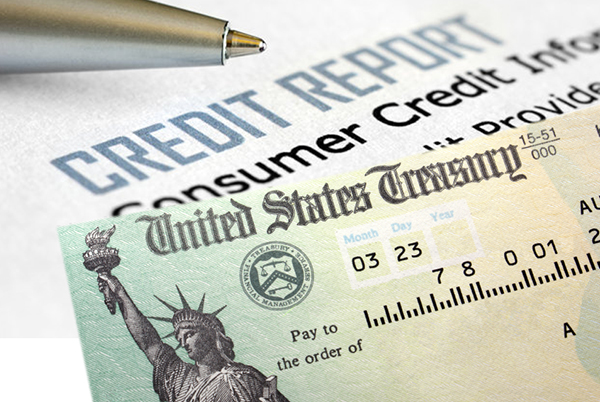Most people with credit cards know the term balance transfer. They may have even been enticed by an offer in the mail. To those with an enormous amount of debt, it may seem counter-intuitive to get another credit card. But in the slowing economy, balance transfers can lower monthly expenses and play an important role in personal budget management. A balance transfer literally transfers the balance from one credit card to another one with better terms and low or zero interest rates. It can assuage post-holiday-spending hangovers, help you make large purchases, combat high interest rates (especially on rewards cards), or relieve you when intro rates on current cards expire. It can be a smart way to buy time-for a limited period of usually 6 to 12 months-where you can avoid finance charges and make payments to the principal balance.
Why it’s offered
It’s in the interest of credit card companies to offer balance transfer deals. They want to lure new customers with good credit who’ll stay for at least four years. They also want to keep pace with the increasingly competitive credit industry. They do this by offering teaser rates (0% or low intro rates for the balance transfer for a limited time) and low fixed rates (for the life of the transferred balance).
However, given that most people won’t pay off their balances before intro rates expire, they stand to make money from interest. They also charge different (higher) rates for new purchases made on the card with no grace period.
Who qualifies
For a new credit card and ideal intro rates, you need good credit. Just applying for the offer doesn’t guarantee you’ll lock in intro rates, especially if your credit is bad. If it is, and they still grant you a card, you’ll have higher interest rates and it won’t be worth it. For tips on repairing and building credit read Building Credit While You’re Young.
The Transfer
After you have applied for a Balance Transfer card and received it in the mail, read the card-member agreement that comes with it. If you have qualified for the 0% balance transfer rate, call your new card issuer to request the transfer. Some issuers will mail you convenience checks — just make sure they are for balance transfers not cash advances. Continue making minimum payments on your old card since it can take four weeks for the transfer to complete.
What to Watch Out For
Hidden Fees: Most charge a transfer fee, usually 3% of the transfer amount. Aim for one that caps the amount at $50 to $75, or else a large balance transfer could cost a few hundred dollars. Avoid cards that charge a membership or annual fee.
Transfer rates versus purchase rates: Some offer 0% APR on balance transfers but not new purchases. Right now, a number of banks are offering 0% APR on new purchases as well, so make sure you’re getting the best deal possible.
Tricky payments: Payments are often applied to the transferred balance first because it has lower rates. The balance transfer must be paid before payments are applied to new purchases. For example, if you transfer $5,000 and then charge $50, all payments will go towards the $5,000 until it’s paid. Meanwhile, the $50 accumulates interest because most balance transfer cards don’t offer grace periods for new purchases.
Ways to Save
Shop around: Compare the fees, APRs and payment policies of several cards. And be realistic about how quickly you’ll be paying down your debt. If you won’t have the balance paid before intro rates expire, find a card with the best overall rates and fees.
Pay more than minimum: Pay the principal balance before intro rates expire so you won’t have to pay interest. If you can’t pay down the full balance, at least pay more than the minimum. Once the standard rates kicks in, just making minimum payments extends the debt’s life for years.
Personal Budget Management: Always make (at least) the minimum payment and pay on time. If you miss payments, you’ll end up with unreasonably high rates and late fees. Set up automatic bill pay if you’re forgetful.
Maintain clean credit: Some credit card companies routinely check your credit reports and raise interest rates if your profile changes for the worse. Make sure you keep a clean credit history.
Think long term: Don’t think that serial balance transfers are a way to avoid paying off your debt. Sooner or later you’ll have to pay it off. Consider them a potentially smart, near-term way to reduce the cost of carrying the debt you have and help you get back into the black sooner.
DMCC is a 501 (c)3 nonprofit organization committed to educating consumers on financial issues and providing personal assistance to consumers who have become overextended with debt. Education is provided free of charge to consumers, as well as personal counseling to identify the best options for the repayment of their debt. To speak to a certified credit counselor, call toll-free 866-618-3328 or email contact@dmcconline.org.
___________________________________________________________________________________
Reference: http://www.mint.com/blog/saving/debt-planning-credit-card-balance-transfers-pros-cons-and-caveats/
 It’s income tax season and many Americans have already planned what they will do with their refund check as soon as they get it. Making large purchases or taking a vacation are popular ways to spend tax money. Many consumers also use their tax refunds to pay down credit cards or other debt. Whether you are looking to buy your dream car or improve your financial wellness, DMCC has a great service to give your goals a boost.
It’s income tax season and many Americans have already planned what they will do with their refund check as soon as they get it. Making large purchases or taking a vacation are popular ways to spend tax money. Many consumers also use their tax refunds to pay down credit cards or other debt. Whether you are looking to buy your dream car or improve your financial wellness, DMCC has a great service to give your goals a boost.